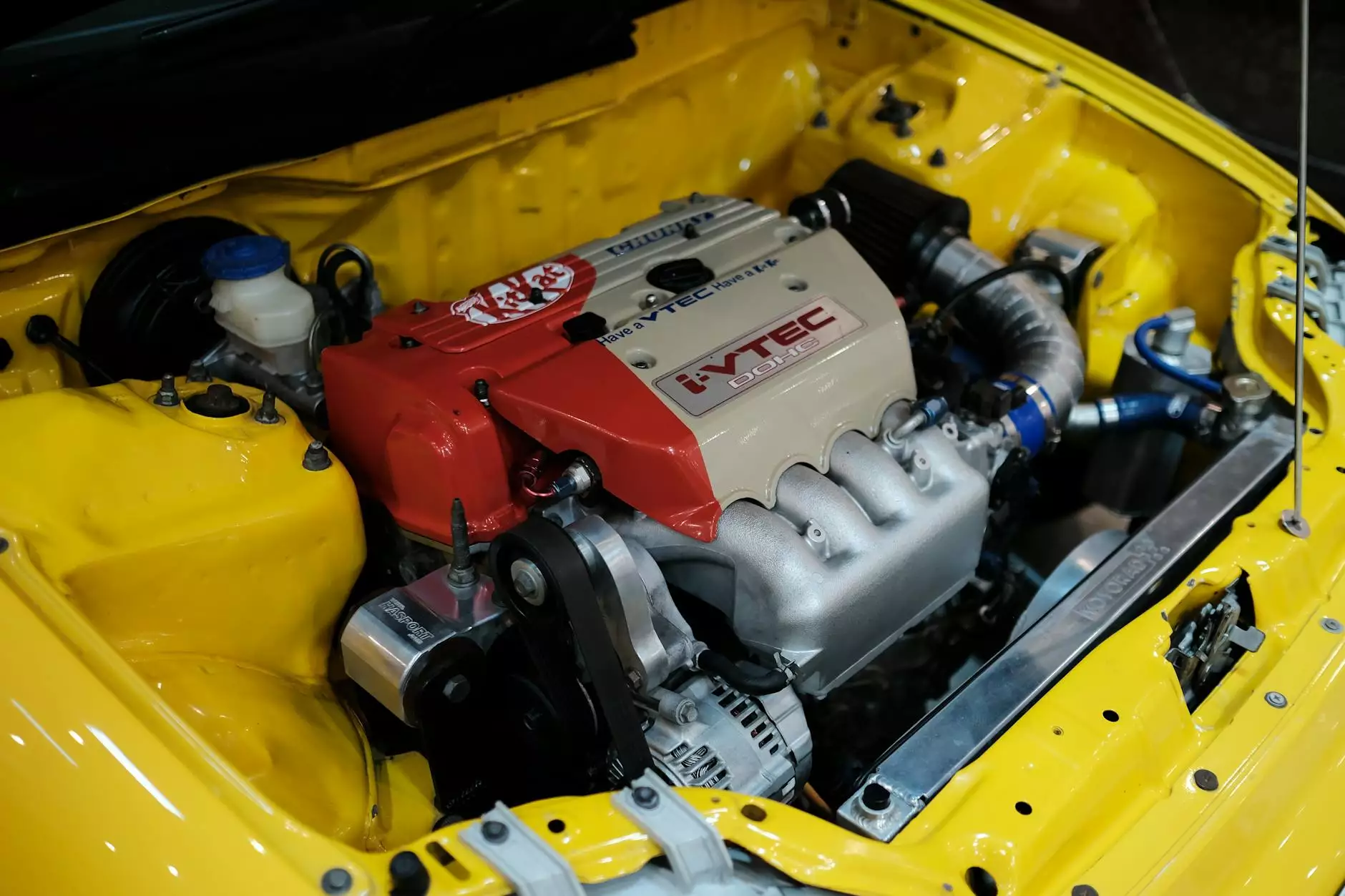Understanding the Crankshaft on Engine: The Heart of Diesel Performance

The crankshaft on engine systems, particularly in diesel engines, is a vital component that plays a significant role in the overall functionality and efficiency of the vehicle. This remarkable piece of engineering is essential for converting the linear motion of the pistons into rotational motion, which ultimately powers the vehicle. Our exploration here will delve into the anatomy of the crankshaft, its importance in diesel engines, and the quality considerations for testing and purchasing crankshafts through reputable spare parts suppliers.
The Anatomy of a Crankshaft
A crankshaft in an engine consists of several key features that allow it to effectively perform its role:
- Main Journals: These are the sections of the crankshaft that rest on the engine's main bearings, allowing for rotation.
- Rod Journals: These connect to the connecting rods on the pistons, converting their up-and-down movement into the rotary motion.
- Countersunk Areas: These sections help to balance the crankshaft and reduce vibrations during engine operation.
- Crankpins: Positioned between the main journals and rod journals, they play a significant role in the proper functioning of the engine’s cycle.
Common Materials Used in Crankshaft Construction
The materials used in manufacturing crankshafts are critical to their performance and longevity. Common materials include:
- Cast Iron: Known for its durability and strength, cast iron is often utilized for standard diesel engine crankshafts.
- Forged Steel: For high-performance applications, forged steel crankshafts offer better strength-to-weight ratios.
- Alloyed Materials: Sometimes, crankshafts are made from special alloys that enhance strength, resistance to wear, and reduce overall weight.
The Functionality of the Crankshaft in Diesel Engines
In diesel engines, the crankshaft has several crucial functions:
- Power Generation: The primary function of the crankshaft is to transfer the power generated from the combustion of diesel fuel to the vehicle’s drivetrain.
- Balance and Stability: A well-designed crankshaft contributes to the even distribution of mass within the engine, which minimizes vibrations.
- Supporting Engine Components: The crankshaft supports various engine components, including the flywheel and timing gears.
The Importance of Crankshaft Balance
Balancing a crankshaft on engine applications is essential for optimal performance. An unbalanced crankshaft can lead to numerous issues:
- Increased Vibration: Vibration can lead to engine wear and tear, ultimately decreasing the engine's lifespan.
- Poor Performance: An unbalanced crankshaft may negatively affect engine efficiency, leading to reduced horsepower and torque.
- Potential Engine Failure: Excessive vibrations may result in catastrophic engine failures, leading to significant repair costs.
Quality Considerations When Sourcing Crankshafts
When discussing the crankshaft on engine repair and maintenance, it is vital to source high-quality components from certified spare parts suppliers. Here are several considerations when making your choices:
Compatibility with Your Engine
Always ensure that the crankshaft you select is compatible with your specific diesel engine model. Improper fit can lead to efficient malfunctions or even complete engine failure.
Material Quality
Evaluate the materials used in the crankshaft manufacturing process. High-quality raw materials directly influence the crankshaft's durability and performance.
Supplier Certification and Reputation
Purchase from reputable and certified suppliers, such as those you might find at client-diesel.com. Reviews and testimonials can provide insights into customer satisfaction and product reliability.
Warranty and After-Sales Support
Opt for suppliers offering robust warranties and reliable after-sales support. A good warranty can offer peace of mind and signal quality assurance of products.
Maintenance of Crankshaft: Best Practices
To ensure a long-lasting and efficient crankshaft on engine, regular inspection and maintenance are critical.
Regular Inspections
Conduct routine inspections to check for signs of wear, damage, or misalignment. Early detection of issues can significantly reduce repair costs.
Oil Quality and Lubrication
Use high-quality engine oil to ensure proper lubrication of the crankshaft. Oil maintains a film that prevents direct metal-to-metal contact, reducing wear.
Aligning and Balancing the Crankshaft
Ensure the crankshaft is correctly aligned and balanced during assembly and maintenance. A properly aligned crankshaft maximizes engine efficiency and performance.
The Future of Crankshafts in Diesel Technology
As technology advances, the design and functionality of crankshafts will also evolve. Innovations such as lightweight materials, enhanced vibration-damping techniques, and better manufacturing processes will likely lead to more efficient and powerful diesel engines.
The Role of Technology in Crankshaft Design
Advanced computer-aided design (CAD) and simulation technologies enable engineers to create optimized crankshaft designs that maximize performance while minimizing weight and material usage.
Sustainable Practices in Manufacturing
As the industry shifts towards sustainability, there's a growing emphasis on recycling and reusing materials in the production of crankshafts. This approach may enhance the environmental impact of diesel engine manufacturing.
Conclusion: The Crankshaft as a Pivotal Engine Component
In conclusion, the crankshaft on engine is more than just a mechanical component; it is the linchpin in the complex operation of diesel engines. Understanding its role, sourcing quality parts, and maintaining its integrity are all paramount for achieving optimal engine performance. As technology progresses, it will be interesting to observe how this critical component continues to evolve, further enhancing the power and efficiency of diesel engines. By choosing quality components from reputable spare parts suppliers, such as those found at client-diesel.com, you can ensure that your diesel engine remains reliable and high-performing for years to come.









